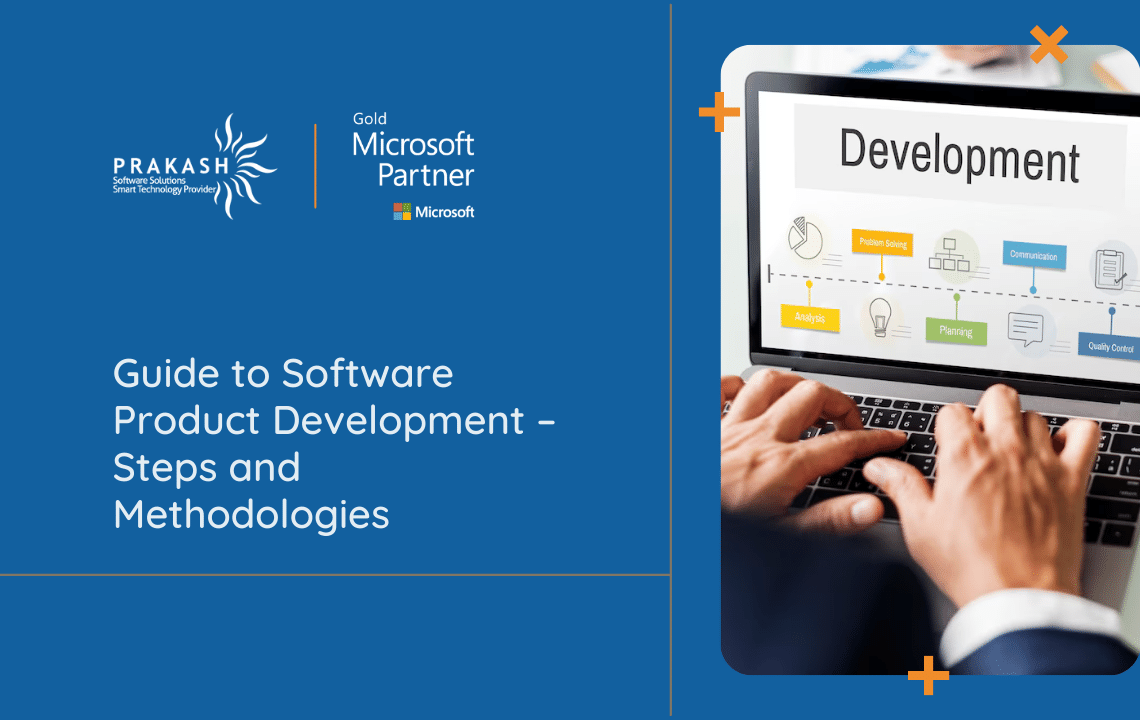
Guide: Custom Software Development for Startups
Startups need to find distinctive ways to stand out in the tech-driven, fast-paced industry of today. Effective custom software development for startups is one of the most important components in accomplishing this.
Developing creative, effective software can provide your business with a clear advantage over rivals and speed up its growth. We all are well aware that utilizing technology’s potential is the key to success!
If you’re starting a business, consider software development for startups as both a necessary tool and an asset. This blog will guide you through fundamentals and software startup ideas to unlock your business’s full potential.
Introduction to Custom Software Development for Startups
The goal of software development for startups is to help new companies establish their brand in a competitive industry.
These solutions align with creative ideas by streamlining and automating critical processes to achieve specific objectives. This agile, customized approach addresses startup challenges and adapts to shifting market demands.
In contrast to traditional approaches, this strategy prioritizes flexibility and quick value delivery. Development starts with understanding the startup’s vision, market environment, and target audience to promote a cooperative, iterative process.
Challenges Faced in Custom Software Development for Startups
Are you beginning with custom software development for startups? Well, it is full with obstacles, if not handled well, and can hinder development and deplete resources. Developing software startup ideas that assure successful software installation requires an understanding of these challenges.
(1) Limited Resources and Funding
Usually, startups have tight finances and little access to funding. Allocating funding for software development requires significant thought to balance short-term demands and long-term objectives.
Startups often emphasize features due to financial constraints, sometimes at the expense of developing a reliable, scalable solution.
(2) Time Limitations
In the competitive startup environment, speed is essential. Hurried development cycles from the urge to deploy quickly increase the risk of mistakes and security vulnerabilities. Rushed deployments can result in subpar user experiences and more security issues.
(3) Clearly Define the Minimum Viable Product (MVP)
Startups frequently make the error of not clearly defining their MVP. Development efforts may get dispersed in the absence of a clearly defined MVP, which could result in feature bloat and delayed releases. A well-focused MVP facilitates user input collection, iteration, and core idea validation.
Peculiarities of the Software Development Process for Startups
Since small businesses lack the financial clout and market power of larger organizations and enterprises, the typical startup software development process is distinct.
The following are the primary differentiators:
Paying attention to the data
Every step of the software development process must be based on data, like other parts of your organization. Startups must create datasets for every product they develop.
All businesses rely on data, but startups need their own datasets. They can prevent the development of data silos, which is a frequent issue in big businesses, by doing this.
Adaptability to changes
Being adaptable is essential to the success of a startup company breaking into an established market. Instead of locking itself into a set strategy, every startup should have a business plan that adapts to the market.
Taking user comments into consideration
Unlike large companies with extensive field knowledge, startups must focus more on client feedback. Startups should prioritize feedback while developing product strategies.
Client feedback is crucial for shaping product development in startups. Startups may directly obtain audience-specific, actionable data from consumers because their customer base is smaller than that of major corporations.
Capacity to change course
You can make minor changes to the business plan, allowing flexibility to alter your startup’s course.
A strong software development process should be free-flowing to adjust without significant losses. This flexibility helps startup owners change direction without the risk of complete failure.
Stages of the Software Development Process for Startups
To ensure that the product life cycle proceeds smoothly from conception to deployment and beyond, you must adhere to a methodical approach when developing a new product. To reach your objective or fulfill the launch deadline, you can add, change, or eliminate steps as you see fit.
The software development life cycle (SDLC) contains the following essential stages.
(1) Concept
The process of software development begins once you get an idea. In bigger companies’ ideas are exchanged during brainstorming sessions.
These sessions are fruitful and should be taken positively. Apart from this market research helps you to come with superior ideas. SWOT analysis of your competitors will help you identify their advantages and disadvantages.
(2) Validation of business
Once the idea is finalized, validation comes next in row. Validating the concept with your stakeholders, investors, partners is vital.
This requires a clear product concept with information on the business plan, competitors, and monetization tactics.
At this stage, creating a minimum viable product (MVP) might be important to highlight essential features. An MVP helps emphasize the essential features and requirements of the software solution.
(3) Development and Design
Once an idea has been validated and an MVP has been created, the focus shifts to software design and development.
User-centric design principles should direct the creation of intuitive user interfaces and faultless user experiences. Agile techniques facilitate iterative development by allowing for continuous input and adaptability to changing requirements.
(4) Quality Assurance and Testing
Ensuring the software’s durability and functionality is essential. Thorough testing and quality assurance techniques can help identify and address bugs, security weaknesses, and usability issues.
To ensure that the application meets the necessary quality standards, this phase consists of user acceptability testing, automated testing, and manual testing.
(5) Deployment and Feedback Loops
Now that the software has been thoroughly tested, it’s time to put it on the market. Effective deployment strategies facilitate a smooth user migration and reduce downtime. After launch, feedback loops must be set up to gather user feedback, identify areas that want improvement, and guide future updates. Continuous input ensures that the program adjusts to user needs and market developments.
Choosing the Right Development Partner
One crucial choice that can have a big impact on a startup’s software project’s success is choosing the best software development company. When selecting a development business, startups should take into account the following factors.
- Knowledge and Experience
- Knowledge of Startup Dynamics
- Communication and Collaboration
- Post-Development Support
- Cost and Value
2024’s Top Software Startup Concepts
The rapidly changing digital landscape offers startups several chances to innovate and upend established sectors. These are a few of 2024’s most exciting software startup concepts.
(1) Solutions for Fintech
Innovation in financial technology is still very much alive and well. Startups can create products that improve financial literacy, streamline payments, give alternative credit options, or offer investment tools.
There are many chances to develop software that supports these new trends as cryptocurrencies and decentralized finance (DeFi) gain popularity.
(2) Applications of Healthtech
The time for digital transformation in the healthcare industry is here. Critical needs in the sector can be met by creating software that increases diagnostic instruments, controls medical records, promotes telemedicine, or improves patient care. In this field, healthtech solutions that put user privacy and data security first are very beneficial.
(3) Machine learning and artificial intelligence
By facilitating automated processes, more intelligent decision-making, and individualized experiences, AI and ML are continuing to transform a number of industries.
Startups can concentrate on creating AI-powered solutions for a variety of industries, including marketing, customer support, and healthcare. Applications that make use of computer vision, natural language processing, or predictive analytics are highly sought after.
(4) Eco-Friendly Technology Options
Software that encourages sustainability is becoming more and more in demand as environmental challenges gain more attention.
Applications that track energy use, handle trash, optimize supply chains for the least amount of environmental effect, or support sustainable practices across a range of industries can be created by startups.
Wrapping Up
Custom software development for companies is a strategic investment that can spur innovation, operational effectiveness, and market differentiation in the cutthroat world of startups. Startups can build dependable, scalable, and user-focused apps that help them succeed by comprehending the particular difficulties they encounter, utilizing the benefits of tailored solutions, and following best practices in software development.
Key Takeaways:
Tailored Solutions: Custom software development for startups enhances productivity and gives a competitive edge by fully matching its unique needs.
Strategic Planning: An organized software development process (from idea validation to deployment) guarantees that the finished product satisfies company goals and user expectations.
Selecting the Right Match: For software projects to be successful, choosing the right software development company with experience, a collaborative style is essential, and knowledge of startup dynamics.
Follow Best Practices: To deliver high quality software one should follow agile approach, maintain quality assurance, keeping lines of communication open, and giving user-centric design top priority.
Although software development for startups is complex, it can turn creative concepts into instruments that promote growth and success.
By investing in custom software and a strategic approach, startups can navigate market complexities and meet customer expectations. Startups can establish a strong foundation in their respective industries through effective software development and strategic planning.



